- Free schools for IDP children in Arakan State struggle to stay open amid funding shortfall
- Female-headed IDP households in Ponnagyun Twsp struggle as commodity prices surge
- Min Aung Hlaing likely to take State Counsellor role in post-election government formation: Analysts
- Hindus express hope for educational reform under AA administration
- Arakanese zat pwe performers struggle to survive as conflict halts traditional shows
Vox Pop: ‘She shouldn’t be showing support, pride, or praise for any one side’
On April 21, State Counsellor Daw Aung San Suu Kyi issued a statement offering praise to the Tatmadaw soldiers fighting against the Arakan Army (AA) in Arakan and Chin states.
01 May 2020
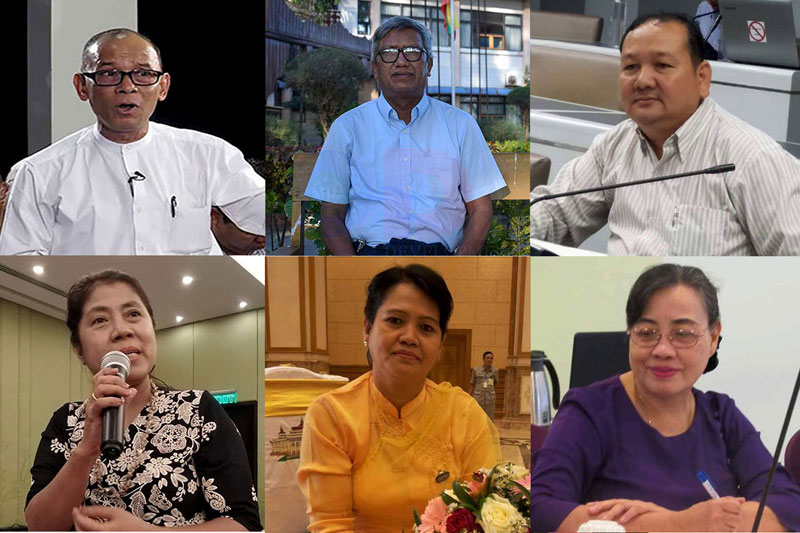
On April 21, State Counsellor Daw Aung San Suu Kyi issued a statement offering praise to the Tatmadaw soldiers fighting against the Arakan Army (AA) in Arakan and Chin states.
“We pay tribute to the members of the Tatmadaw who have discharged their duties with courage and dedication, and sacrificed their lives to defend the lives and property of our people from the ULA/AA terrorist group, who have been engaged in destructive activities at this time when the Government, the people and well-wishers are all engaged in endeavours for the prevention, containment and cure of COVID-19,” read the statement. It concluded: “The Union Government is resolved to continue with efforts to take the peace process, which aims at putting an end to the sufferings imposed by conflict on our people, to a successful conclusion.”
DMG asked individuals from various fields about the remarks, which came at a time of escalating hostilities in western Myanmar’s seemingly intractable conflict.
Compiled by Khaing Roe La
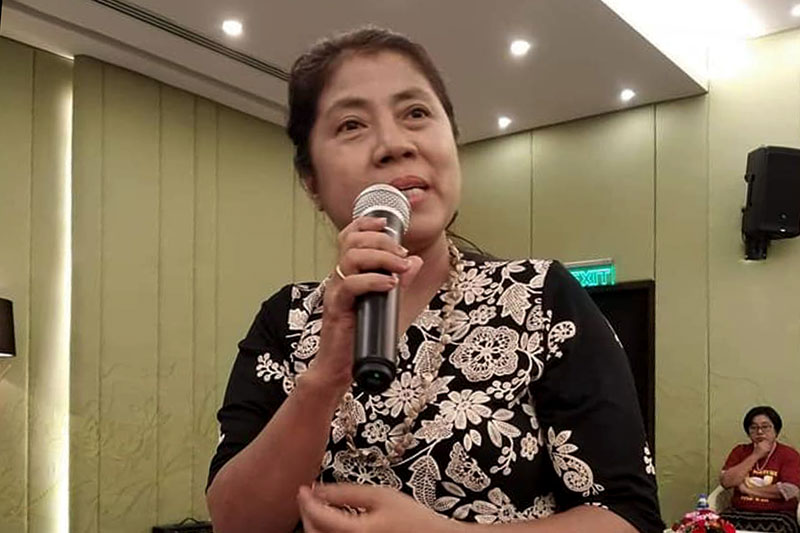
Daw Nyo Nyo Thin (founder of Yangon Watch)
Personally, I think that praise for an armed group is unacceptable. There needs to be peace in the whole country while facing this global pandemic of COVID-19. There needs to be peace in the whole world. The United Nations has called for ceasefires with armed groups. Under the present circumstances, I don’t think that anyone — let alone the leader of the nation — should promote one particular armed group. In the final paragraph, the statement says the government will continue to work toward peace; if that’s the case and there really is a desire for peace, especially in ethnic areas where there’s fighting with the Tatmadaw, then the government is being very deceptive. She shouldn’t be showing support, pride, praise or otherwise, for any one side.
Problems don’t have to be solved via military means, and for us, we believe solutions should be found via the political route. Praising or taking pride in one armed side means that you are oppressing the other party. I believe that national leaders should never issue this kind of statement, especially not at a time like this.
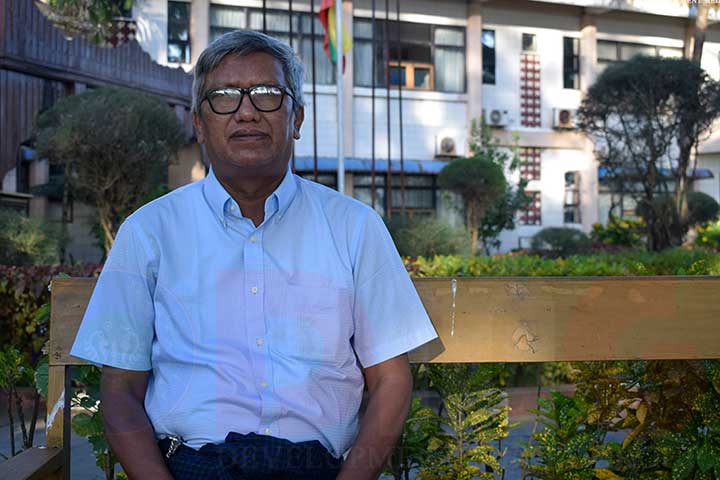
U Maung Maung Soe (ethnic affairs analyst)
On March 23, the Myanmar government designated the Arakan Army as a terrorist group. The Ministry of Foreign Affairs had previously said that as a terrorist group, the AA needed to be crushed. With this recent statement, the situation with the AA may deteriorate further, since in it the State Counsellor has further endorsed the AA’s designation as a terrorist group, rather than as an ethnic armed group.
She stands with the Tatmadaw. She sees the AA as a terrorist group that should be crushed. By saying she is proud of those who are fighting to destroy the AA, she has shown that she, her party and the national government have the same view as the Tatmadaw. Rather than stopping the current conflict in Arakan and Chin states, this statement will either directly or indirectly cause a further deterioration of the situation.
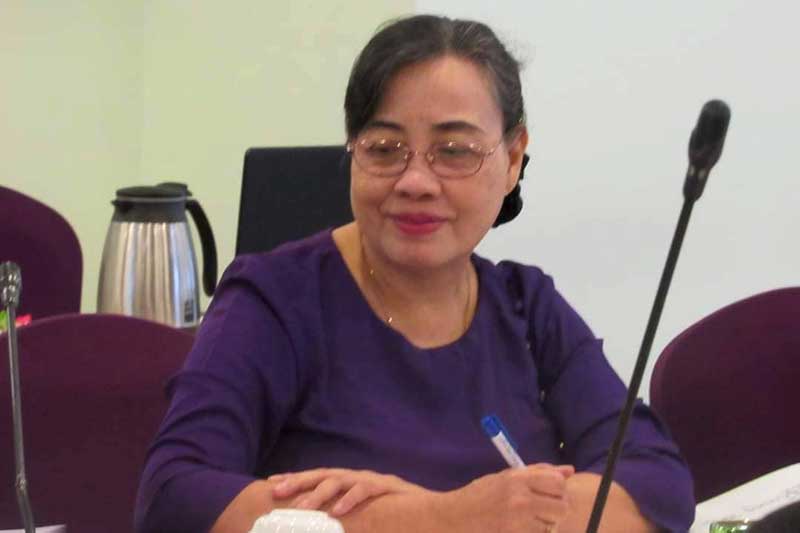
Saw Mra Razar Lin (senior leader of the Arakan Liberation Party)
It depends on from which perspective you look at the statement. It’s like looking at two sides of a coin: One side will look completely different from the other. The political situation in Arakan is the same, depending on which way you look at it. Arakan’s political path has been long and arduous due in part to many different opinions and perspectives. Arakan’s problems have existed for a long time and are related to the whole country. Many of these issues have lasted for over 70 years. Bringing an end to the civil war is difficult, especially when there has been mismanagement.
As someone who has been directly involved in the peace process, I would like to mention one of my experiences as an example. In 2015, while preparing the Nationwide Ceasefire Agreement under President U Thein Sein, fighting in Kokang meant they were considering excluding six armed groups. From the authorities’ side, they didn’t see the need to sign a ceasefire agreement with three of the groups. This meant the groups were excluded from the NCA, and their omission has in part led to the current fighting we have today.
To this day, many ethnic armed revolutionary groups place great value on inclusiveness. Prior to the NCA agreement, all 21 ethnic armed organisations were involved in drawing up the NCCT [Nationwide Ceasefire Coordination Team]. The 21-member bloc has had a long history of armed conflict as it addressed Myanmar’s political problems. I believe that for the armed conflict to end, a new political culture needs to be established whereby political solutions rather than military action are the means by which solutions are found. Due to mismanagement there is still the problem that some members are unable to come to the table for dialogue and discussions. Rather than labelling one group as the perpetrators, one side as the terrorists, it is important to think about how to put an end to the conflict for the good of the country.
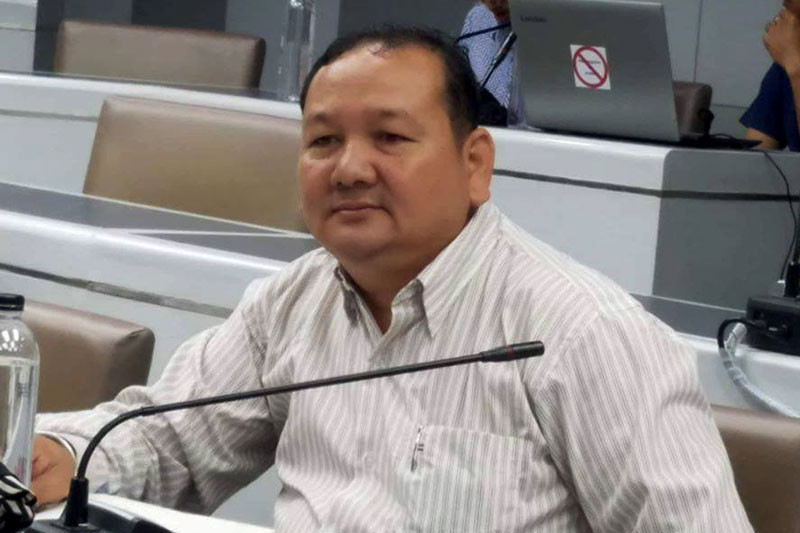
Khaing Kaung San (director of the Wan Lark Foundation)
The most important thing is that Daw Suu is the country’s State Counsellor, and while talking on one side about Tatmadaw soldiers, she also needs to show compassion for the hundreds of innocent people who have died throughout the course of this conflict. Referring in the statement to terrorist destruction will hinder the peace process as well as Myanmar’s transition toward a federal democracy.
Daw Aung San Suu Kyi needs to understand both the aspirations of revolutionary armed groups and the political dialogue necessary for a federal system in Myanmar. The needs of the 21 groups, not just the AA’s, are directly linked to the needs of the country. Political analysts and researchers have the same needs. What I want to say is that Daw Suu needs to understand that the revolutionary forces are organisations working to address the needs of the people and peace.
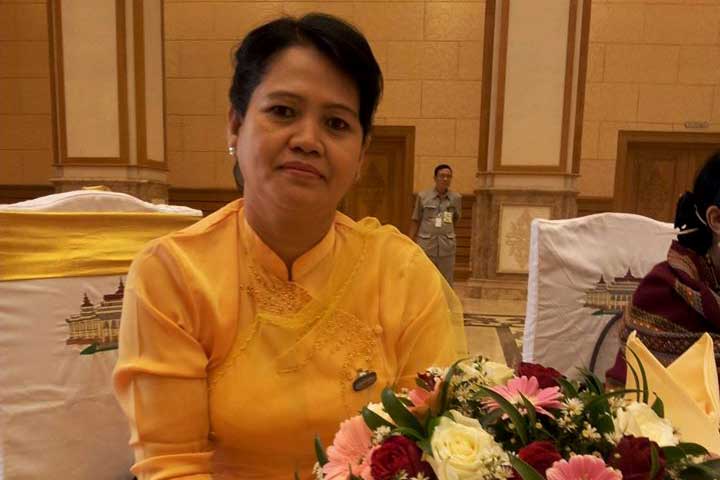
Daw Khin Saw Wai (Pyithu Hluttaw member of Parliament, Rathedaung Twsp)
From the statement I can see that there’s absolutely no understanding of what’s really taking place on the ground. This is because there are restrictions on the media — on where they can travel as well as the internet shutdown, which has made information more difficult to access. The media have highlighted the suffering of the Arakanese people, about the numerous reasons as to why these people have fled their homes. There are now over 160,000 IDPs in the state.
News reports have shown us the truth about what is happening on the ground. I am a representative member of Parliament in Arakan State so I am speaking from the Arakan perspective. People may think that I am biased toward the Arakanese, so for that reason, please read an interview published in The Voice which mentions my suggestions on the topics concerned. Generally speaking, when I look at the State Counsellor's statement, I find it misleading.
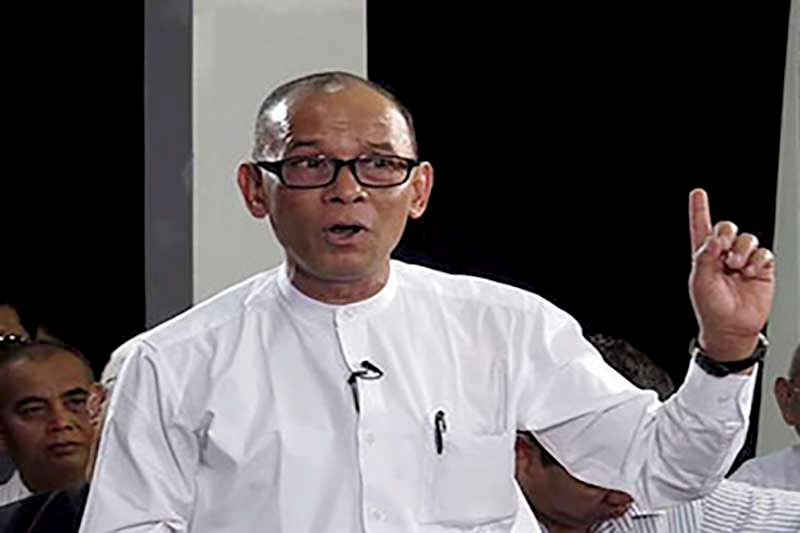
U Mya Aye (leading member of the Federal Democratic Force)
There are two main points to the statement. The first one concerns praising the Tatmadaw, the second concerns using the term ‘terrorist group’ to refer to the AA. This is now a time for national reconciliation — we need to realise that and understand that ethnic people are fighting for their basic rights in various ways.
Her statement should be neutral; it shouldn’t be biased toward either the Tatmadaw or an armed group. From the government’s position, it will be more effective to take a neutral position when mediating between the Tatmadaw and the ethnic armed groups. Frankly speaking, I don’t quite agree with what was said and the usage as I am afraid that there will be more fighting and war because of it.







.jpg)












